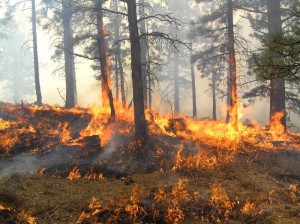 For many parts of the country, wildfire season is quickly approaching. For some areas, such as California and New Jersey, the season is already underway. Even if you live in an area where wildfires are rare, it is good to stay on top of the threat and exercise basic wildfire preparedness. Many of these basic preparedness tips can help in other types of emergencies and natural disasters.
For many parts of the country, wildfire season is quickly approaching. For some areas, such as California and New Jersey, the season is already underway. Even if you live in an area where wildfires are rare, it is good to stay on top of the threat and exercise basic wildfire preparedness. Many of these basic preparedness tips can help in other types of emergencies and natural disasters.
Basic Preparations For Wildfires
- Build an emergency supply kit tailored to your family’s needs.
- Create an emergency communications plan for your family.
- Know where to get information whether it is your local TV station, radio station, or online. Have multiple sources for information if possible.
- Consider purchasing a hand cranked radio so you can continue to get information in a power outage.
- Keep your cell phones and other devices charged. Make sure you have fresh batteries for radios and flashlights.
- Register your landline and cell phone with reverse 911, sign up for text and email alerts, and utilize apps for your smartphone to receive evacuation notices. Local emergency services in most areas have online registration for the alert systems they use.
- Do not rely on the above systems to alert you to evacuate. Reverse 911 has malfunctioned in some areas, and people died as a result. Wildfires can change direction and speed quickly.
- Prepare your home for evacuation.
- Protect your home and property by creating defensible space.
- Plan several escape routes.
- Know what to do in your local area when a wildfire approaches or in case of evacuation.
- Check your insurance policy to make sure you are covered in case of a wildfire.
- Create an evacuation plan that includes several escape routes and the steps you will take, including what you will take with you and when you will pack for evacuation.
Special Considerations
Under some circumstances, additional planning is necessary:
- If you or someone in your household has respiratory problems, you may need to leave well before an evacuation due to smoke from the fire.
- If you or someone in your household requires special medical equipment, such as an oxygen concentrator or motorized wheelchair, you may need to leave early and you may need to plan for special transportation.
- If you have large animals or livestock, you need to plan well in advance for their transportation and where you will keep them. You may need to remove them from the area well ahead of an evacuation because panic may make them hard to retrieve and transport.















